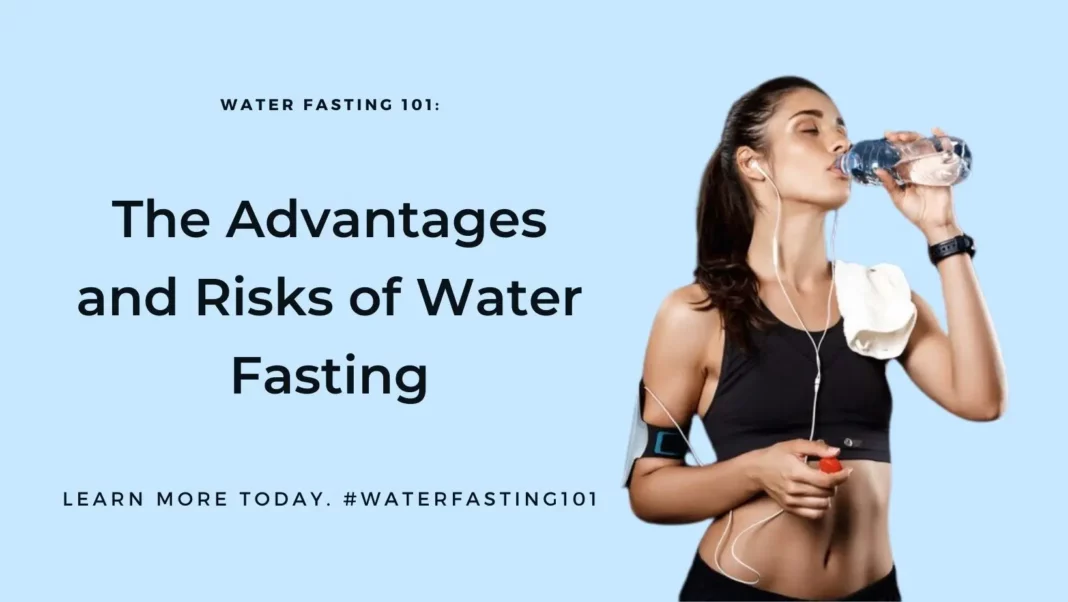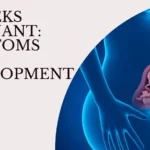Are you curious about the transformative potential of water fasting for your health but hesitant about its lesser-known aspects? Exploring the power of water fasting opens a door to understanding both its incredible advantages and possible risks. This method, revered for its potential health benefits, involves abstaining from food and relying solely on water intake for a designated period.
Delving into the realm of water fasting reveals an intriguing blend of promise and caution. This article ventures beyond the surface, shedding light on the captivating advantages and potential hazards of this fasting practice. Understanding its nuances, from metabolic improvements to mental clarity and the quest for overall well-being, uncovers a multifaceted approach to health.
While the idea of enhanced cellular repair and weight loss through fasting captures attention, navigating the uncharted waters of nutrient deficiencies and the risk of imbalanced health conditions warrants careful consideration. The journey of water fasting isn’t merely about embracing its potential perks; it’s about comprehending the delicate balance between its advantages and the unseen challenges that may arise.
Join us on a comprehensive exploration of the power that water fasting holds, unveiling the layers of its benefits and cautionary elements, ultimately empowering you to make informed decisions about this intriguing practice.
What is Water Fasting?

Water fasting is a type of fasting method that involves abstaining from all food and only consuming water for a specified period. It’s a practice that has been used for centuries for various reasons, including religious, spiritual, and health purposes.
During a water fast, individuals refrain from eating any solid foods and typically avoid consuming beverages other than water. Some may allow herbal teas or black coffee, but the primary focus remains on drinking water to stay hydrated.
The duration of a water fast can vary significantly, ranging from short-term fasts lasting 24 hours to longer fasts extending from several days to weeks. Longer fasts, especially those lasting more than a day or two, should ideally be conducted under medical supervision due to potential health risks.
The main idea behind water fasting is to give the digestive system a break from processing solid food, allowing the body to use its energy reserves and potentially initiate processes like autophagy—a cellular self-cleansing process. Advocates claim various health benefits associated with water fasting, such as improved metabolism, weight loss, detoxification, mental clarity, and potential healing effects on certain health conditions.
Different types of water fasting
Water fasting generally involves abstaining from food and only consuming water for a specified period. However, there are variations in the approach and duration of water fasting. Here are some different types:
- Standard Water Fast: This involves consuming only water and abstaining from all other beverages and foods. It’s the most straightforward form of water fasting.
- Modified Water Fast: This type of fast allows for some limited intake of non-caloric beverages or supplements, such as herbal teas, black coffee (without additives like sugar or milk), or electrolyte solutions. The idea is to maintain hydration and potentially mitigate some of the discomfort associated with water fasting.
- Intermittent Water Fasting: Unlike continuous water fasting for an extended period, intermittent fasting involves alternating between periods of eating and fasting. For example, the popular 16/8 method involves fasting for 16 hours and allowing an 8-hour eating window each day. During the fasting period, water intake is allowed.
- Extended Water Fast: This type of fast typically lasts for more than 24 hours, ranging from several days to weeks. Extended water fasting requires careful planning, supervision, and consideration of potential health risks due to prolonged absence of food intake.
- Medically Supervised Water Fast: In some cases, individuals may undergo a water fast under medical supervision, especially if it’s for an extended period. Medical professionals monitor various health parameters, provide guidance, and ensure the individual’s safety throughout the fasting process.
- Religious or Spiritual Water Fasts: Many religious and spiritual practices incorporate fasting, including abstaining from food and drink for certain periods. These fasts might have specific guidelines, durations, and purposes based on the beliefs and traditions of the respective faiths.
Regardless of the type of water fasting chosen, it’s crucial to approach it with caution, ensuring adequate hydration and considering individual health conditions and nutritional needs. Consulting with a healthcare professional before starting any fasting regimen, especially an extended water fast, is advisable to minimize potential risks and ensure it’s suitable for one’s health and well-being.
Benefits of Water Fasting
Health Benefits:
- Weight Loss and Metabolic Improvements: Water fasting can lead to rapid initial weight loss as the body uses stored glycogen and fats for energy. It may also help improve insulin sensitivity, potentially aiding in better management of blood sugar levels.
- Cellular Repair and Autophagy: During a fasted state, the body initiates autophagy—a process where cells remove damaged components and recycle them for cellular repair. This process is believed to have various health benefits, including potential anti-aging effects and improved cellular function.
- Potential Impact on Chronic Diseases: Some studies suggest that water fastingFasting Risks
-
might have positive effects on certain chronic conditions. Research is exploring its potential to reduce inflammation, improve cardiovascular health, and possibly contribute to managing conditions like high blood pressure, heart disease, and certain types of cancer. However, more scientific evidence is needed to firmly establish these benefits.
Mental and Emotional Benefits:
- Clarity of Mind and Focus: Many individuals report experiencing increased mental Health and improved focus during water fasting. Some attribute this to the body’s shift into ketosis—a state where the body uses ketones for energy, which might positively impact cognitive function.
- Emotional Well-being and Mindfulness: Fasting can sometimes lead to a heightened sense of mindfulness and emotional stability. Some people find that the process of fasting helps them become more aware of their relationship with food and fosters a sense of discipline and self-control.
It’s important to note that while these potential benefits are reported anecdotally and, in some studies, individual experiences may vary. Additionally, prolonged or repeated water fasting without proper guidance or consideration of individual health conditions can pose risks and may not be suitable for everyone.
Consulting with a healthcare professional before embarking on a water fasting regimen is crucial to ensure safety and appropriateness based on individual health circumstances.
Risks and Challenges of Water Fasting
Potential Risks to Health:
- Nutrient Deficiencies: Extended periods without food intake can lead to deficiencies in essential nutrients like vitamins, minerals, and electrolytes. Lack of these nutrients can result in weakness, fatigue, dizziness, and potentially severe health complications.
- Adverse Effects on Certain Health Conditions: Water fasting may not be suitable for individuals with specific health conditions such as diabetes, eating disorders, kidney issues, or those who are pregnant or breastfeeding. Fasting can exacerbate these conditions or pose significant health risks.
- Potential for Eating Disorders or Unhealthy Relationships with Food: For some individuals, engaging in frequent or prolonged water fasting could trigger or exacerbate disordered eating patterns, leading to an unhealthy obsession with food or body image issues.
Psychological Challenges:
- Hunger Pangs and Mental Stress: Extended periods of fasting can lead to increased hunger sensations, which may cause mental stress, irritability, mood swings, or difficulty concentrating. This can be particularly challenging for individuals unaccustomed to fasting.
- Social Implications and Practical Difficulties: Participating in water fasting might pose social challenges, especially during gatherings or events that involve food. It can also be challenging to manage fasting schedules within daily life or professional commitments.
It’s crucial to approach water fasting cautiously and to consider these potential risks and challenges. Prolonged or repeated fasting without proper guidance or consideration of individual health conditions can lead to adverse effects.
Reasons why people try water fasting
Water fasting is a significant dietary change that might not be suitable for everyone. However, certain individuals might consider water fasting under appropriate guidance and circumstances:
- Religious or Spiritual Reasons: Fasting, including water fasting, holds significance in many religious or spiritual practices. It’s observed as a way of spiritual purification, and self-discipline, and as a means to deepen one’s connection with spirituality or religious beliefs.
- Mental Clarity and Focus: Individuals often turn to water fasting to experience increased mental clarity and heightened focus. Some believe that fasting helps clear the mind and enhances cognitive functions.
- Weight Loss: Water fasting is commonly pursued as a method to kickstart weight loss. By restricting calorie intake, the body turns to stored fat for energy, potentially leading to initial rapid weight reduction.
- Detoxification: Many people view water fasting as a way to “detox” the body by abstaining from solid foods and allowing the body’s natural cleansing processes to eliminate toxins.
- Health Benefits: Some individuals try water fasting due to claims and research suggesting potential health benefits. These include improved metabolism, cellular repair mechanisms (such as autophagy), and the belief that fasting may contribute to overall health improvement.
- Preparing for a Medical Procedure: Before certain medical procedures or tests, individuals may be required to undergo fasting to ensure accurate results or minimize potential complications.
- Resetting Eating Patterns: Water fasting is utilized by some individuals to reset or recalibrate their eating habits. It can serve as a starting point for adopting healthier dietary practices or breaking unhealthy eating patterns.
However, it’s essential to emphasize that water fasting is not suitable for everyone. Certain groups of individuals should avoid or approach water fasting with extreme caution:
- Pregnant or breastfeeding individuals
- Children and adolescents
- Those with a history of eating disorders or disordered eating behaviors
- Individuals with chronic health conditions such as diabetes, heart conditions, kidney issues, or compromised immune systems
- Anyone taking medications that require food intake or specific timing
Before considering water fasting, individuals should consult with a qualified healthcare professional. Seeking medical advice helps evaluate whether water fasting is safe and appropriate based on an individual’s health history, current health status, and overall well-being. It’s crucial to prioritize health and safety when considering any fasting regimen.
Guidelines for Safe Water Fasting
Consult with a Healthcare Professional: Before starting a water fasting regimen, especially if considering an extended fast, consult with a healthcare provider. This is crucial to ensure it’s safe based on individual health conditions, medications, and overall health status.
Start with Shorter Fasting Periods: If new to water fasting, start with shorter periods, like intermittent fasting (e.g., 12-16 hours), before attempting longer fasts. Gradually extending the fasting window can help the body adapt.
Stay Hydrated: Drink adequate water throughout the fasting period to prevent dehydration. However, don’t overconsume water, as excessive intake can lead to electrolyte imbalances.
Consider Electrolytes: In longer fasts, especially beyond 24 hours, consider including electrolyte supplements or beverages to maintain electrolyte balance. This can help prevent issues like dizziness or muscle cramps.
Monitor Physical Signals: Pay attention to your body’s signals. If you experience severe dizziness, faintness, weakness, or any concerning symptoms, break the fast and seek medical attention if needed.
Break the Fast Carefully: When ending a fast, reintroduce food gradually and gently. Start with easily digestible foods like fruits, vegetables, or small portions of easily digestible proteins to avoid digestive discomfort.
Avoid Strenuous Activities: During extended fasting periods, avoid intense physical activities or strenuous exercises that might further stress the body.
Get Sufficient Rest: Adequate rest and sleep are crucial during fasting periods to support the body’s repair processes and maintain energy levels.
Listen to Your Body: Everyone’s body reacts differently to fasting. If you feel unwell, excessively fatigued, or experience severe discomfort, consider discontinuing the fast and seeking professional advice.
Consider Professional Supervision: For longer or medically-motivated fasts, consider doing so under the supervision of a healthcare professional who can monitor your health and provide guidance.
Remember, the key to safe water fasting is approaching it cautiously, listening to your body, and prioritizing health and safety. It’s essential to understand that fasting might not be suitable for everyone, especially those with certain health conditions or specific medical needs. Consulting a healthcare provider is crucial before starting any fasting regimen.
Conclusion
Water fasting is a dietary practice that involves abstaining from food and consuming only water for a specific period. While it has been associated with potential health benefits such as weight loss, metabolic improvements, cellular repair, mental clarity, and emotional well-being, it’s crucial to approach this practice with caution and awareness of its potential risks and challenges.
The benefits of water fasting, including its impact on weight loss, metabolic health, and cellular repair mechanisms like autophagy, have been observed anecdotally and in some studies. However, the scientific evidence supporting its long-term health benefits is still evolving and requires further research.
On the other hand, the risks and challenges of water fasting, such as potential nutrient deficiencies, adverse effects on certain health conditions, and psychological stressors like hunger pangs or social implications, highlight the importance of careful consideration and professional guidance before undertaking a fasting regimen.
Individuals considering water fasting should prioritize their health and safety by consulting with a qualified healthcare professional. This step is crucial to evaluate the appropriateness of fasting based on individual health conditions, medications, and overall well-being.
Thank you for joining us on this fitness journey! We hope you found our blog insightful and inspiring. Our aim is to provide you with valuable information, expert advice, and motivational content to support you in your wellness endeavors.
Related Lifestyle Post-
- Pillow Talk: Why Chiropractors Recommend Specific Pillows
- Why Self-Compassion Is the Key to Your Well-Being
- Boost Your VO2 Max
- How Many Steps Do I Really Need a Day?
- The Myth of 21 Days

Meet Pradeep Singh, your go-to guide for all things fitness, health, and motivation. With over 7 years in the field, Pradeep brings a blend of expertise and real-world experience to his writing. From workout tips to healthy living insights, he simplifies complex topics, making fitness accessible for everyone. His authentic approach and genuine passion aim to inspire and support your wellness journey. Get ready to embark on a path to a healthier lifestyle with Pradeep as your trusted companion and motivator.






















